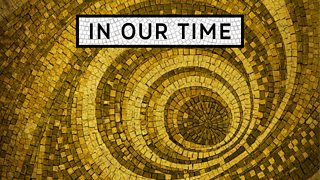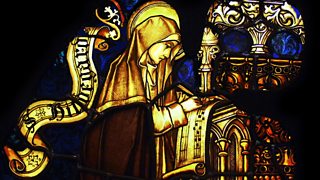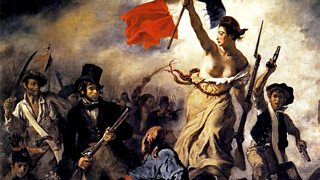Teach Yourself A Lesson: Delve Deeper Into History With In Our Time
As it gallops towards 1000 episodes, covering topics as diverse as Magna Carta to the history of Samurais, In Our Time continues to be an excellent informational resource, study aid and an enlightening, entertaining way to delve into the minutiae of any subject.
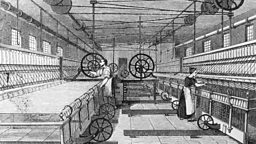
So if you want to learn a more about a particular historical subject, fancy a spot of educational self-improvement or you’re attempting some home-schooling, Melvyn Bragg and his panels of experts are sure to provide some inspirational wisdom and a plethora of challenging ideas.
The English Civil War and the Restoration
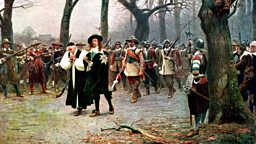
The death of Queen Elizabeth I, who left no heir, plunged Britain into a period of uncertainty, confusion, political intrigue and bloodshed, culminating in the Civil War, the establishment of a republic and the eventual restoration of the monarchy.
For background, the episode concerning The Death of Elizabeth I reveals the rancour that her passing created and the mixed emotions generated by her successor James I. The pomp of the Stuart kings, certainly a contributory factor in their downfall, is investigated in The Divine Right of Kings while the notion of a republic and how deeply the republican spirit inhabits the British psyche is examined in Republicanism.
The fate of Charles I and the establishment of the Commonwealth under Oliver Cromwell are explored in The Trial of Charles I while the subsequent foundering of the new republic and the return of the monarchy under Charles II are examined in The Restoration.
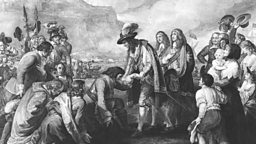
The British Empire
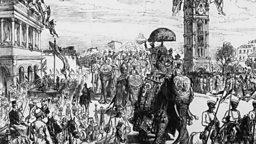
At its height, the British Empire covered a quarter of the globe, stretching from Canada to India and incorporating such diverse areas as Australasia, the Persian Gulf and large swathes of Africa. But what drove this passion for colonisation and what legacy has the Empire had on the countries that were conquered, both socially and culturally?
The reasoning behind the growth of the Empire was investigated in The British Empire which questioned why imperialism was such an important element in British life, particularly among Victorians, and why it all ended so quickly.
Delving deeper, Slavery and Empire examines the history of imperialism and the subjugation of individuals, asking whether slavery is an inevitable part of empire. Astronomy and Empire looks at the development of new navigational tools and their importance in establishing naval control while Imperial Science ponders whether agriculture or trade were the main driving factor in establishing an empire.
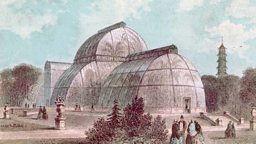
Further Listening:
The Great Exhibition of 1851, Archaeology and Imperialism, The East India Company
International Relations and Global Conflict 1890-1945
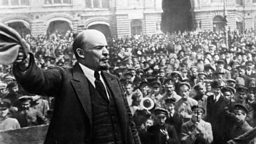
The years between 1890 and 1945 saw a seismic change on the world stage with various nations establishing their influence and dominance, while others faded from power.
Two enormous global wars changed the history, and make up, of the planet and numerous technological and scientific innovations altered society forever.
In Germany, the unification and growth of the state was spearheaded by Otto Von Bismarck whose nationalistic fervour was to have far-reaching effects. In Russia, the age of the Tsars was coming to an end and revolution was in the air, explored in the episode dedicated to Tsar Alexander II's Assassination and also Lenin.
The decline of Anglo-German relations before the First World War is the subject of The Riddle of the Sands while the cultural impact of The Great War is explored in the episode dedicated to poet Siegfried Sassoon. The first ever In Our Time looked into the two great wars of the 20th Century, while the inhumanity displayed throughout the century’s conflicts is covered in Atrocity in the 20th Century.

The Cold War
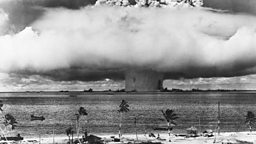
Clashing ideologies, technological advancements and the power vacuums created by the end of the Second World War led to an extensive period of global uncertainty that pitted two great superpowers, the USA and the USSR, against each other.
This battle between the forces of capitalism and communism had enormous consequences for the state of world peace and drove the planet to the brink of nuclear war.
The American Century investigates the complex and sometimes contradictory character of the USA, prophesying freedom abroad while facing fundamental civil rights issues at home. The dark side of the Soviet state under Stalin is investigated in the episode dedicated to Lysenkoism.
The cultural aspects of the Cold War and totalitarianism are explored in the episodes dedicated to Animal Farm and Hannah Arendt. New Wars looks at the change in combat methods while Nuclear Physics considers the science and cultural significance of the Atomic Bomb.
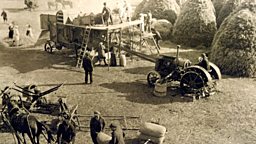
The Transformation of China
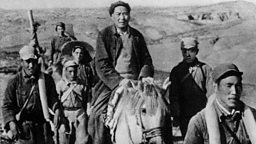
The 20th Century saw enormous, globally significant changes to the nation of China. Centuries of rule by emperors was replaced by unstable governments that led to the growth of communism, and in recent years China's emergence as a world superpower.
The foundation of all this ferment and dissent can be seen in the Taiping Rebellion which attempted to establish a new Chinese dynasty and would have far-reaching effects on the shape of modern China. The Boxer Rebellion of 1900 saw rebels from the north attempt to purge the country of all foreign influence while the brutality of the Sino-Japanese War would affect relations in Asia for decades to come.
The mythology connected to The Long March is explored alongside its importance in the development of Mao Zedong as the supreme Chinese leader, while the episode dedicated to Confucius looks at the continuing importance of Confucianism in Chinese society and how it influences China today.
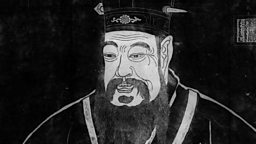
More from In Our Time
-
![]()
In Our Time Podcast
Every episode of In Our Time is available to download.
-
![]()
The In Our Time Listeners' Top 10
The top ten programmes as suggested by In Our Time's audience, to mark the 750th edition.
-
![]()
In Our Time: Culture
Popular culture, poetry, music and visual arts and the roles they play in our society.
-
![]()
In Our Time: Science
Scientific principles, theory, and the role of key figures in the advancement of science.
